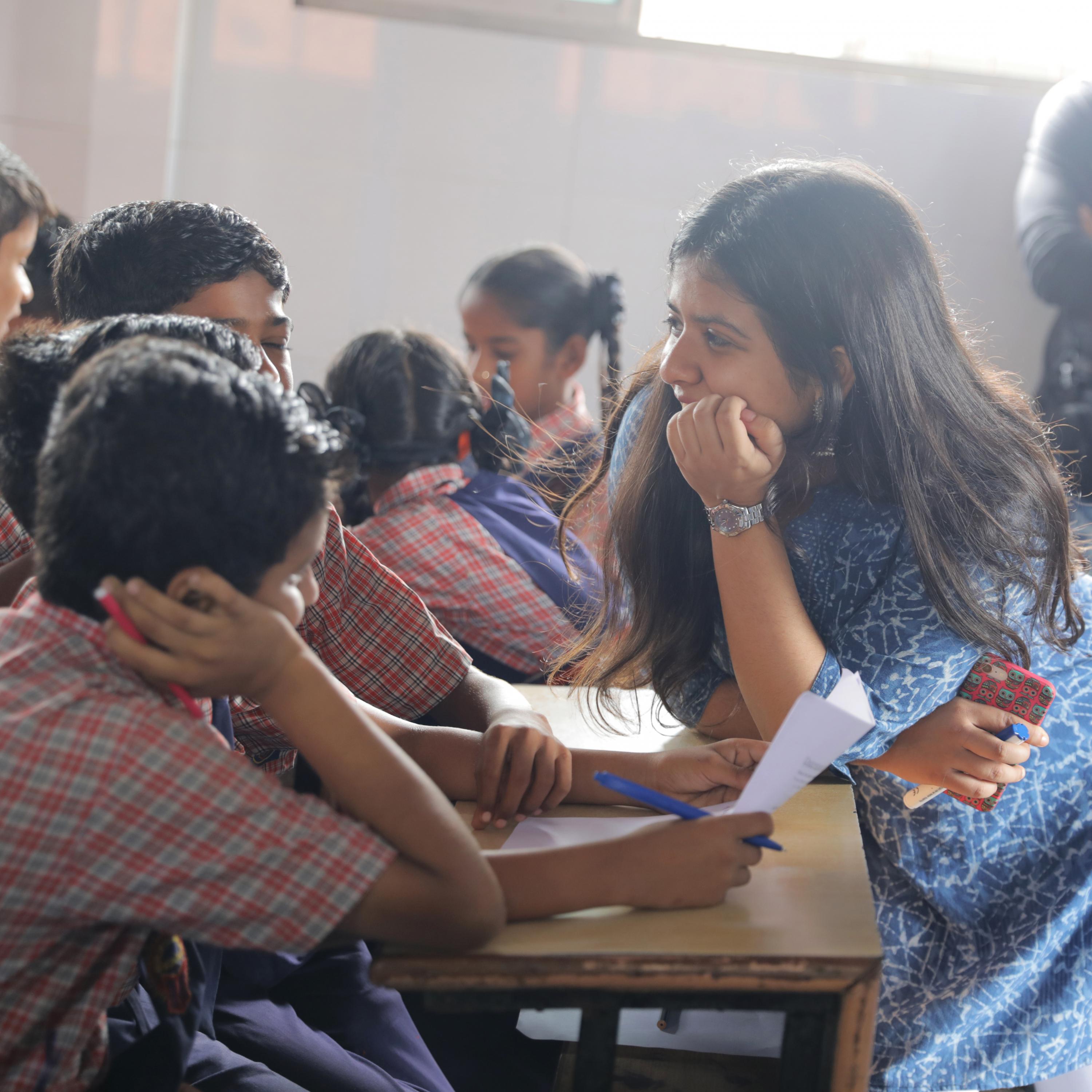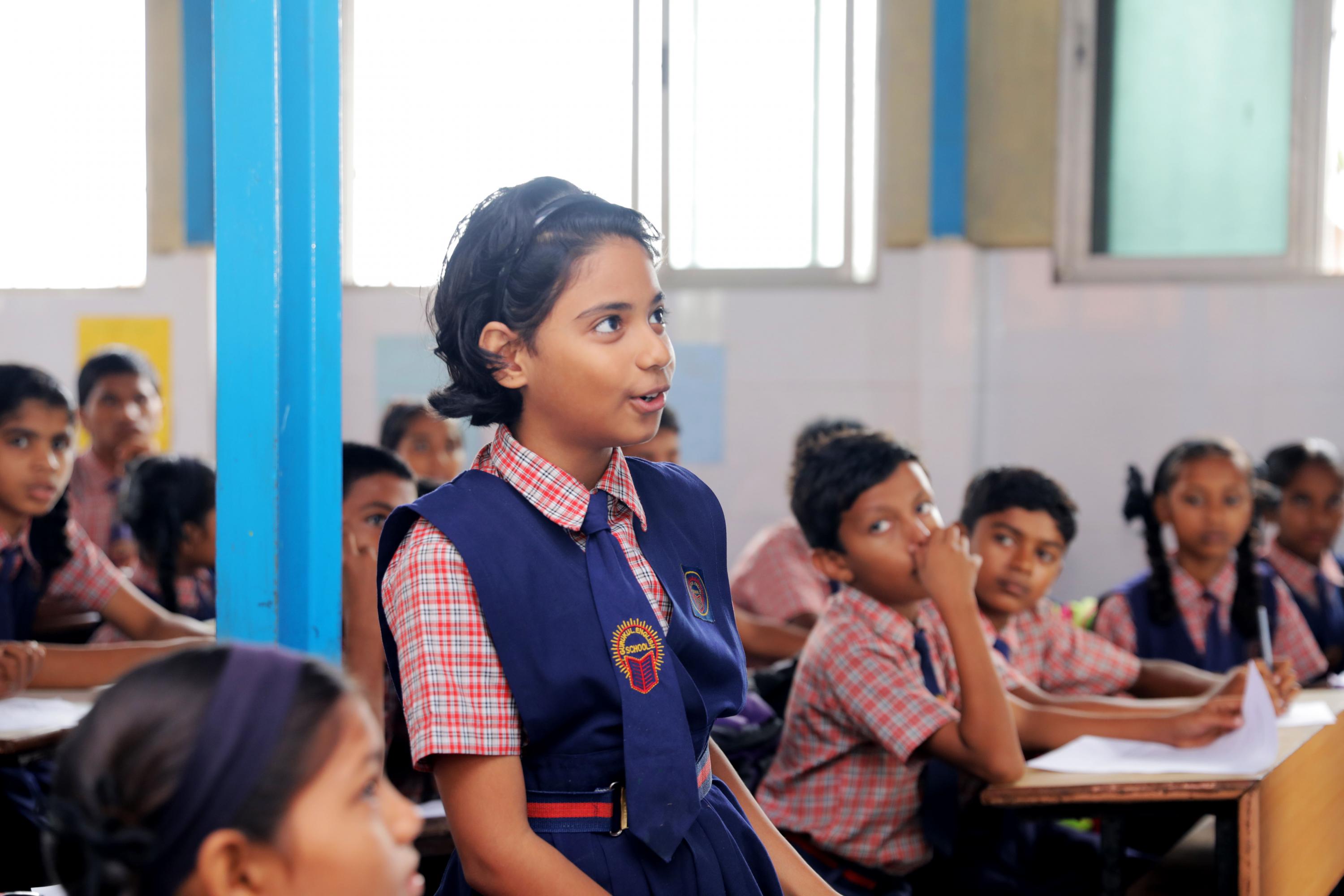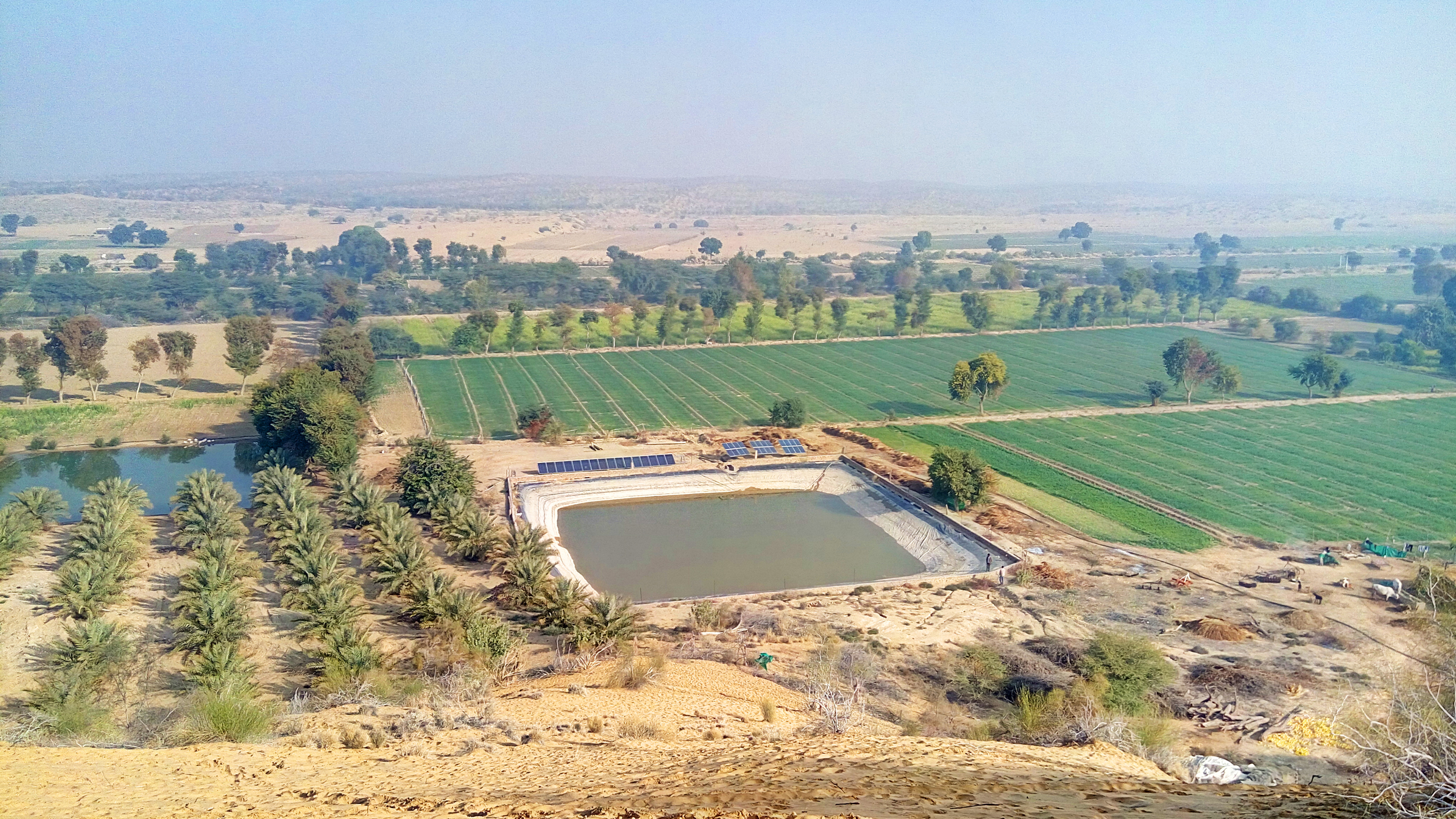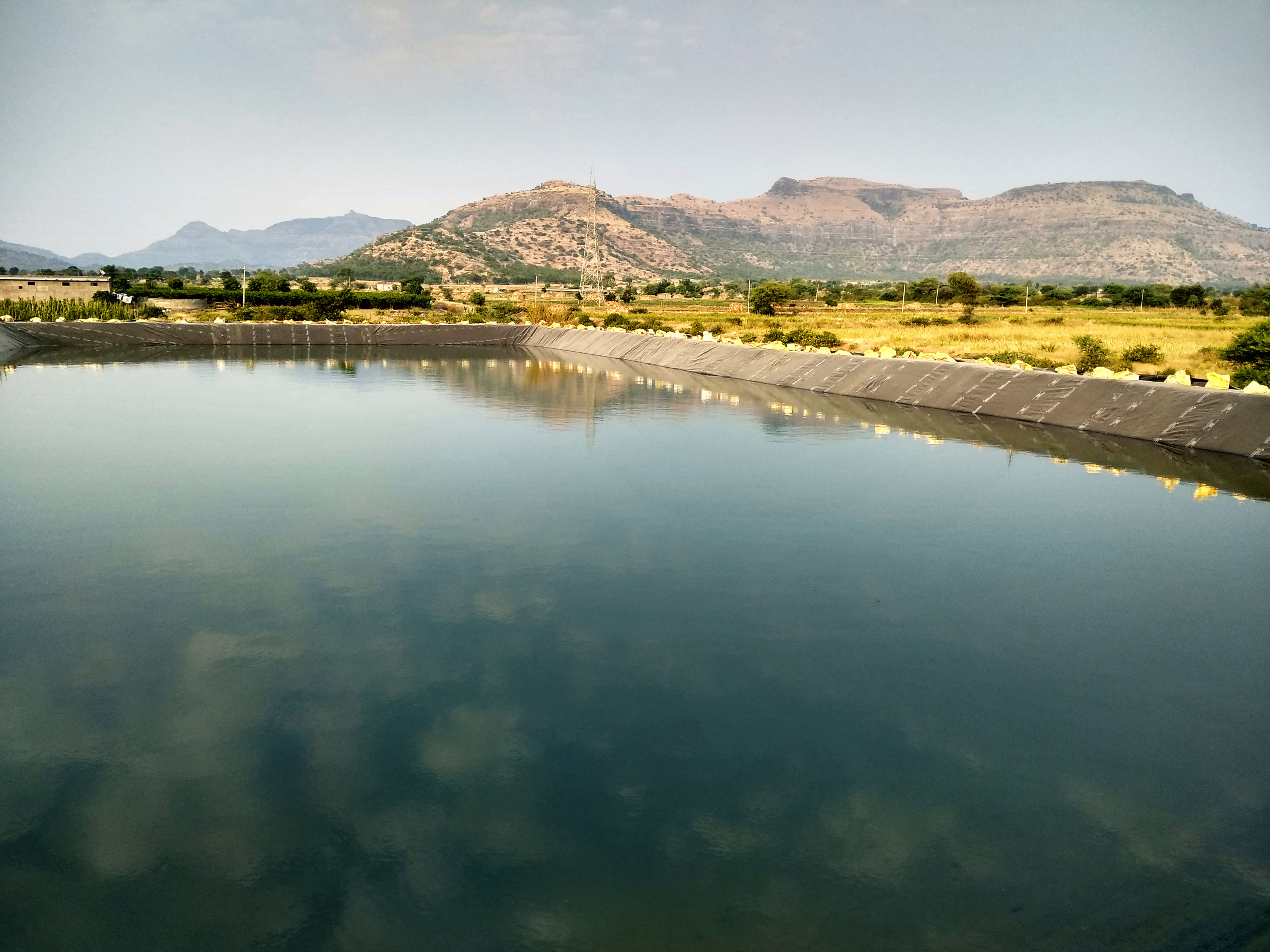Acquiring an internship at a Big Four consulting company is considered an achievement by most undergraduate students in the H. Milton Stewart School of Industrial and Systems Engineering (ISyE). However, this was not fifth-year Maithili Appalwar’s experience. “The company was actually a great place to work, but it wasn’t for me,” Appalwar said in a recent interview. “It was really confusing, because getting this internship seemed like a box I had to check to be successful, but I’d come home every day feeling empty.”
As a result of her internship, Appalwar began thinking about what she really wanted to accomplish – and how. Mental health issues have been a focus of her attention since arriving at Tech – she was on the executive board for the Well-Being Activators and worked to cultivate over 50 activators across campus. She has also worked as a peer coach at the Counseling Center. Consequently, along with Sarayu Kantheti (University of British Columbia) and fellow Georgia Tech student Yash Punjabi (CS 18), she co-founded Thrive, an organization dedicated to raising mental health awareness among high school and college students in India, where Appalwar is from. Thrive won the People’s Choice Award in Georgia Tech’s 2018 Ideas to Serve Competition, and Appalwar received a President’s Undergraduate Research Award (PURA) to further develop Thrive this semester.
Indirectly, mental health issues also led Appalwar and her father to found Avana, a startup that creates affordable farming technologies. She noticed that a lot of the rural farming villages that she visited for her work on Thrive had high suicide rates. Farming can be an extremely challenging occupation in India because rainfall is so erratic, and water storage is a problem. Together with the farmers, the father-and-daughter duo came up with a solution.
“What’s the simplest way to store water?” Appalwar said. “It’s literally digging a pit in the ground.” The farmers suggested the ponds, and the Appalwars – who own a family-run polymer processing plant –devised a wide polymer material to line the ponds, thus enabling farmers to cheaply store water (at a cost of one dollar for 2,700 liters per year).
After she graduates in December, Appalwar plans to return to India to work on both Thrive and Avana. In the following Q&A, she discusses the growth of her two startups and what she’s learned in the process.
You founded Thrive to address mental health issues in India’s high school and college students. What is the mental health landscape like there, and what was your goal for Thrive?
The treatment gap for mental health issues in India is 98 percent, which means that of 100 affected people, only two receive treatment. And obviously, those are extremely severe cases, so people who are moderately affected are not receiving help.
Mental health literacy is a problem. A recent study done on Indian college campuses found that 55 percent of students had moderate to high levels of depression. But when my Thrive co-founders and I talked to students this past summer, we realized that people didn’t even know what depression and anxiety are.
So, through Thrive, we came up with a program to teach students about mental health, and we were able to test out the program in 15 schools – with 700 high school and college students – to see whether it improved their learning outcomes.
What are the next steps for Thrive?
I’m using the PURA stipend to do further research this semester – to get the data together and evaluate what ways the program did and didn’t work, and how we can pivot based on that analysis.
A lot of the schools we worked with were in the slums in Mumbai, so the next step is to pilot an after-school program for one of those schools. Because there are so few counselors in India – one for every 343,000 people – we are instead trying to build up these children’s protective factors, trying to develop their resilience.
We are looking at the whole community as an assets-based model, as opposed to a deficit-based model. These communities are strong, so how can we use that? How can we use the students’ school and their parents and their teachers? A deficit-based perspective would say, “Here’s all the things you don’t have, and here’s how I’m going to give them to you.” Instead we’re thinking about what the students already have and using that to help alleviate their distress.
One thing I learned this past summer is that there’s a “dream gap.” For example, as students here at Tech, we’re in a very privileged position. We know that if we work hard for something, there’s a very good chance we’ll get it. But in India, the attitude I repeatedly encountered was that the students couldn’t even dream, because there is no way they’ll achieve it.
So our responsibility is to teach them that there are resources available to them to help them succeed. For example, there are thousands of scholarships for low-income communities in India, and many of these scholarship funds finish the year with a surplus because not enough people apply for them – people don’t even know about them.
Let’s talk about Avana. What has been the biggest takeaway in starting that organization?
I think the challenge for me was to realize that the people – the farmers – we are working with live incredibly different lives from me. So going into these environments, you don’t want to be patronizing and act like you’re there to solve all their problems.
Avana is a brilliant solution, and the reason that it’s brilliant is because it came from the community. We went in and asked the farmers, “What do you think would be a good way to save water?” And they said, “If we had a big pond on the farms, that would be helpful.”
In order to get to solutions like that, you have to be able to listen. The farmers also told us, “Being able to conserve water is great, and we can grow so much more now. But we want to be able to sell our produce, and sell it at better prices.”
So now we want to connect the farmers directly with the consumer through 100 percent supply chain transparency – people will be able to know exactly where their produce is coming from. The buyers will see these farmers’ faces and feel empathy and know that when they pay a little extra for their food, it’s going to someone who worked really hard to grow it.
What are you most proud of accomplishing?
Both Thrive and Avana are bigger than me or any of my achievements, so it’s hard for me to take credit for them. It’s all about the teams that I work with – absolutely amazing people. But I think I’m most proud of getting outside my comfort zone.
And that has been so rewarding. With Avana, I have never visited a farm and left without baskets of fruit or other produce. The farmers will make you sit down and eat a meal with them. They have such big hearts. For Thrive, distress is not something you can put a number on. So taking an exploratory angle on it – with the research – is something that’s very useful both to our design process, as well as to our growth as people through working on this venture.
For More Information Contact
Shelley Wunder-Smith
H. Milton Stewart School of Industrial and Systems Engineering
404.385.4745



